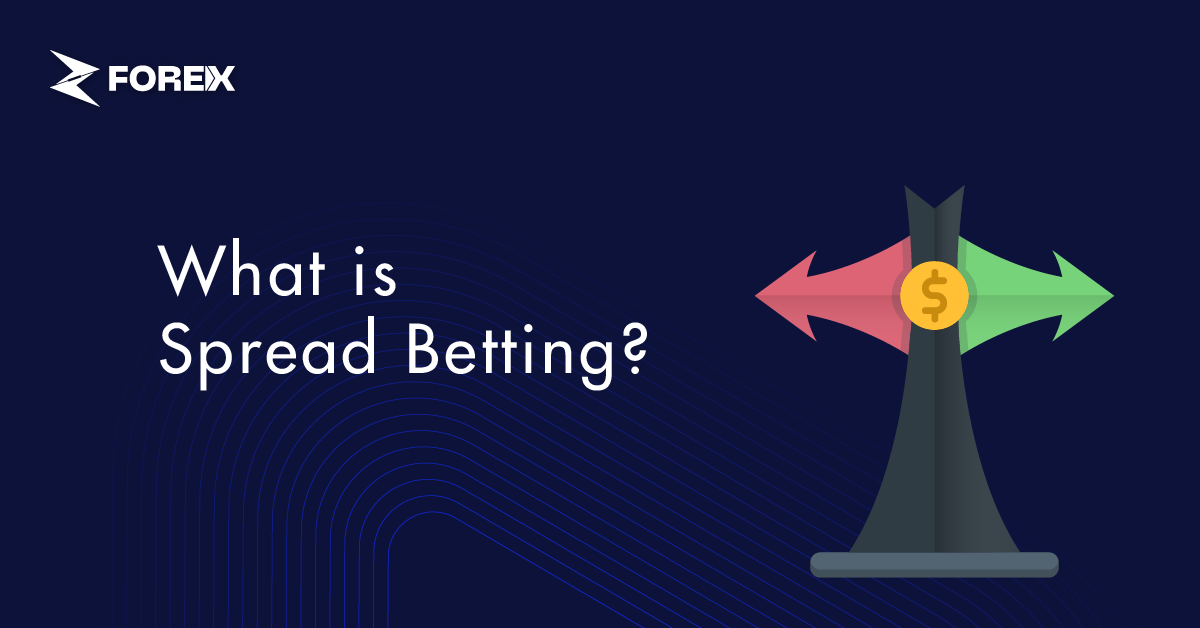
Spread betting allows traders to speculate on the movements of a financial market. Per its name, it includes betting on the price movement of the product without owning the underlying security. A spread betting company offers two prices for an asset: the bid price to sell and the ask price to buy.
The difference between these prices is called the spread, which is essentially the company's charge for handling the trade.
Giving the traders the flexibility to trade with their preferred risk level, spread betting makes it possible to profit from both bull or bear markets potentially.
Traders deposit a small portion of the position’s worth as spread betting is an instrument with leverage. However, it’s important to keep in mind that as leverage magnifies gains, it also magnifies losses, which means traders can lose more than their capital.
In spread betting, "going long" and "going short" are terms used to describe the direction of your bet on an asset's future price movement. Going long expresses optimism about price increases while going short indicates you expect a decrease.
When you go long, you are betting that the asset's price will rise. This involves buying at the current ask price and aiming to sell later at a higher price. Your profit increases as the price goes up from your entry point.
Going short means you predict that the asset's price will decline. You enter the position by selling at the current bid price, hoping to buy back at a lower price in the future. You would profit if the price drops below your initial selling point.
Let's say you are analyzing Company X, currently priced at $100, with a broker's spread of $99.50 (bid) and $100.50 (ask). You predict the price will rise due to a potential positive earnings report and decide to place a bet of $10 per point on this increase, starting your bet at the ask price of $100.50.
If the stock rises to a new ask price of $105.50 after the report, the price movement from your entry point ($100.50 to $105.50) would be $5. This results in a profit of $50, calculated as $5 increase x $10 per point.
However, if the stock falls, the new bid price might be around $94.50. Since your entry point was $100.50, the price movement is $6 downward ($100.50 down to $94.50). Thus, you would face a loss calculated as a $6 decrease x $10 per point, totaling a $60 loss.
As we mentioned above, spread betting includes inherent risks because of its leveraged nature. Some strategies can help manage potential losses.
Make sure you understand how leverage works and avoid excessive leverage. It's best to begin with low levels of leverage and slowly raise them as you gain more knowledge and experience.
Stop-loss orders are another way of protecting your investment as they automatically close your position when your assets reach a certain level of your pick. Guaranteed stop-loss orders, even though they come with additional costs, eliminate market gapping and close your position at the exact level you set.
Spread your bets on different assets to reduce exposure to any single market’s volatility. If one market performs poorly, the negative impact on your portfolio can be minimized by the performance of other assets. For example, investing in both stocks and commodities can help to balance your risk.
Financial markets tend to be volatile, so traders are prone to act on factors like fear or greed. Sudden changes in the markets might prompt you to make a move without thinking twice. Make sure to avoid impulsive decisions and stick to your trading plan.
How does leverage work in spread betting?
Leverage allows you to control a large position with a relatively small deposit, known as the margin. This can increase profits and losses, making it important to manage risks carefully.
What are the risks of spread betting?
The main risks include losses due to leverage, wide spreads during volatile periods, and margin calls if the market moves against you.
Can I lose more money than I invest in spread betting?
While you can lose more than your initial stake due to leverage, broker platforms offer stop-loss orders, which prevents you from losing more than the funds in your account.
Is spread betting suitable for beginners?
Spread betting can be tricky and carries high risks, especially with leverage. Beginners should educate themselves and start with a demo account to understand the approach without financial risk.
How can I manage risks in spread betting?
Risk management in spread betting can be done by setting stop-loss orders, watching positions regularly, diversifying trades, and never betting more than you can afford to lose.
What is the difference between spread betting and CFD trading?
Both spread betting and CFD trading let you speculate on market movements without owning the underlying assets. However, spread betting is usually tax-free and involves betting an amount per point of price movement, while CFDs involve trading specific numbers of shares or units and may be subject to capital gains tax.
 Silver Rally Ahead? Supply Deficit Meets Rising Demand
Silver Rally Ahead? Supply Deficit Meets Rising Demand
A new silver rally may be forming as supply deficits deepen and China’s demand grows. Here’s what is driving the momentum.
Detail Fed Rate Cuts 2026: How to Position Now
Fed Rate Cuts 2026: How to Position Now
Fed rate cuts in 2026 could reshape markets. See expectations, asset impact, and positioning strategies for bonds, gold, stocks, and USD.
Detail Analyzing the U.S. Labor Market Outlook for 2026
Analyzing the U.S. Labor Market Outlook for 2026
Year’s first jobs report looked reassuring. A closer breakdown, however, tells a more layered story about the direction of the labor market.
DetailThen Join Our Telegram Channel and Subscribe Our Trading Signals Newsletter for Free!
Join Us On Telegram!